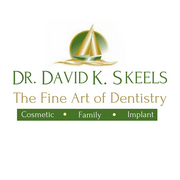
Oral bacteria, food sugars, and the acids they produce wear away at tooth enamel through a process known as demineralization. Without proper care, this tooth decay will eventually form a cavity that requires a filling from a trusted dentist. However, if you address the problem early enough, you may be able to reverse decay through a natural process known as remineralization—when the body slowly helps rebuild damaged teeth. If you’re curious about remineralization, here are three easy ways you can support the process.
3 Steps to Tooth Remineralization
1. Optimize Oral Hygiene
Saliva is the powerhouse of remineralization, as it introduces beneficial minerals to damaged enamel and helps reverse tooth decay. Unfortunately, the healing qualities of your saliva won’t do much good if your teeth are heavily impacted by plaque and food debris. The bacteria in plaque and the ingredients in food can expose your teeth to acids that speed up decay.
If you take care to brush twice a day, floss daily, and rinse regularly with an antiseptic mouthwash, you can neutralize these destructive acids. With acidic levels more balanced, your mouth will have an easier time utilizing beneficial minerals to rebuild damaged teeth. To improve your routine, ask your dentist about oral hygiene solutions during your next teeth cleaning appointment.
2. Drink More Tap Water
 Drinking tap water supports remineralization in a number of ways. For starters, it will keep you hydrated to ensure your mouth benefits from routine saliva production. Drinking more water also helps you avoid beverages that can be destructive to tooth enamel—such as sugary fruit juice and soda. Tap water also contains fluoride—a natural mineral that helps strengthen the teeth against cavities and can slow down the process of demineralization.
Drinking tap water supports remineralization in a number of ways. For starters, it will keep you hydrated to ensure your mouth benefits from routine saliva production. Drinking more water also helps you avoid beverages that can be destructive to tooth enamel—such as sugary fruit juice and soda. Tap water also contains fluoride—a natural mineral that helps strengthen the teeth against cavities and can slow down the process of demineralization.
3. Eat the Right Nutrients
Tooth remineralization would not be possible without calcium and phosphorous. These minerals find their way onto teeth by way of saliva and can slowly rebuild damaged areas of enamel. But for this process to take place, you must have ample amounts of calcium and phosphorous already in your diet.
To introduce more of these nutrients into your diet, focus on enhancing your dairy choices—such as by drinking milk or eating cheese. Phosphorous, on the other hand, is abundant in animal proteins—such as lean poultry and eggs. Both calcium and phosphorous are also obtained through numerous fresh fruits and vegetables, especially leafy greens.
While it is possible to reverse tooth decay to an extent, following these steps is no replacement for professional care. Fortunately, with help from Dr. David K. Skeels in Rochester, NY, keeping your teeth strong and healthy is easy. Providing care for patients of all ages, this family dentist will help monitor decay and fill cavities as needed. Dr. Skeels will also take the time to learn about your lifestyle habits and offer recommendations to simplify your oral hygiene. For more details on these services, visit this local dental practice online. To schedule an oral exam and teeth cleaning with a dentist, call (585) 467-7000.
About the Business
Have a question? Ask the experts!
Send your question

